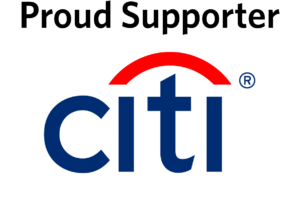
Previous Winners and Case Studies

Case Study for 2019-2020
PLEASE NOTE: This case study is from the 2019-2020 competition, and should be used for reference purposes only. The current case study for the competition can be found here: https://globalyouth.wharton.upenn.edu/investment-competition/case-study/
You can’t build an effective investment strategy without first knowing your client… Meet Reshma Sohoni!
Share in Google Classroom
CASE STUDY: You just graduated college and now work at an up-and-coming asset management company, Wharton Global Asset Management (WGAM). The firm currently manages a $100,000,000 portfolio that is invested across several different sectors, representing a broad range of industries and companies. You are an analyst, but you hope to one day become a portfolio manager who makes the final investment decisions for WGAM’s portfolio.
WGAM’s current portfolio manager (your team’s teacher/advisor) recently met with a potential client Reshma Sohoni, a professional with a deep interest in technology and business that began when she was an undergrad studying both economics and engineering at the Wharton School and Penn Engineering at the University of Pennsylvania. Reshma says, “I have always worked at the intersection of business and technology, that being the thread across my career…I love numbers and people.”
In 2007, Reshma co-founded Seedcamp, a European seed fund, which is a type of equity-based fund in which investors invest money in a business to get it up and running, and in turn own part of the business. Seedcamp is one of the most active investors globally, making more than 35 investments every year with a portfolio of more than 300 companies to date.
When she’s not working with her team and tech-driven startups as Seedcamp’s managing partner, Reshma is spending time with her husband and two sons, ages 2 and 7, in their London home. Reshma loves the fact that Seedcamp gives her the chance to continually build something from nothing across many different sectors. However, finding and supporting world-changing startups is more than a full-time job. Reshma needs a partner to help invest for her family’s financial future. She is looking to hire a team with the most compelling investment strategy to build and manage her wealth, primarily for the long-term.
Reshma’s key long-term investment goals include education, retirement and larger contributions to society. She also has some short-term financial goals. Her husband recently started a safari business in Africa, a capital-intensive endeavor that will use a portion of family money to grow. So, while your focus should be on building a portfolio with a clear goal of long-term wealth creation, it is recommended that a small portion of your portfolio — 20% — should be allocated to short-term liquidity to support Powerdown.co. Reshma told the portfolio manager that WGAM has 10 weeks to put together a detailed portfolio analysis proposal.
Your portfolio manager recognizes that it will not be easy to land Reshma as a client because she is also talking to other talented asset management firms (other classes and teams). As it is critical to make the most convincing case to Reshma, everyone on the team must contribute to ensure that WGAM creates the best proposal. Your portfolio manager tells you that this is your chance to shine!
Over the next 10 weeks, your team will develop and test an investment strategy using only the industries and companies from the competition’s approved stock list. Your team will conduct a thorough analysis of industries and companies, with the goal of ensuring both long-term and a small amount of short-term profitability for your prospective client. You will test your investment strategy using the Wharton School’s Online Trading and Investment Simulator (OTIS). And remember, OTIS can only accurately assess the performance of investments that are made for the short-term. So, while you should test your complete strategy and portfolio performance on OTIS, the majority of your investments should be long-term and therefore won’t require excessive buying and selling of stocks. Some active trading may well be necessary to fulfill Reshma’s short-term needs.
Your team will start out with a portfolio of $100,000 in virtual cash, and will compete against students from all over the world. At the end of the 10 weeks of trading, you will be required to submit a proposal detailing your recommended investment strategy. Judges will review your final investment thesis and select top teams. Those teams will be invited to present their strategies, either in person or virtually, to a panel of experts.


